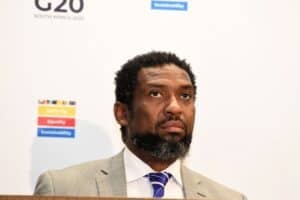Venezuelans, reeling under a devastating economic crisis, vote Sunday in an election boycotted by the opposition and condemned by much of the international community but expected to hand deeply unpopular President Nicolas Maduro a new mandate.

Venezuelans, reeling under a devastating economic crisis, vote Sunday in an election boycotted by the opposition and condemned by much of the international community but expected to hand deeply unpopular President Nicolas Maduro a new mandate.
Maduro, the political heir to the late leftist firebrand Hugo Chavez, has presided over an implosion of once wealthy oil producer Venezuela’s economy since taking office in 2013.
Hyperinflation, food and medicine shortages, rising crime and broken water, power and transportation networks have sparked growing discontent and violent unrest among Venezuelans.
However, the 55-year-old former bus driver is favorite to win ahead of his main rival Henri Falcon, a former army officer and state governor who has failed to gain the endorsement of the main opposition leaders, and an evangelical candidate, Javier Bertucci.
Falcon has failed to gain the endorsement of the main opposition leaders. AFP/File/Luis ROBAYO
Maduro, with a tight grip on the electoral and military authorities, faces a bitterly divided opposition which has called for a boycott.
“Low enthusiasm will likely reduce voter turnout and enable Maduro to control the outcome without major social backlash,” said analyst Risa Grais-Targow of Eurasia Group.
Teresa Paredes, 56-year-old housewife, said that “for the first time in my life I am not going to vote because we are living a dog’s life, without medicines, without food.”
Alvaro Toroa, 64-year-old retiree from the opposition stronghold of eastern Caracas, said he cast his ballot because “this has to be ended. Falcon is able to bring disaffected Chavists and the opposition.”
Aware of the popular mood, Maduro Saturday promised an “economic revolution” if re-elected.
“We are defending… the right to a just and prosperous future,” he said on Twitter.
Falcon promised to dollarize the economy, return companies expropriated by Chavez and allow humanitarian aid, something rejected by Maduro.
A man walks past graffiti reading “I Don’t Vote”, in Caracas on the eve of the presidential election. AFP/Juan BARRETO
“Our struggle has been aimed at a peaceful and electoral path,” he said on Twitter.
Some 20.5 million people are eligible to vote in a one-round election to choose a president for a six-year term that will begin in January 2019.
Presidential elections are traditionally held in December, but they were moved up this year by the country’s all-powerful Constituent Assembly, catching the divided and weakened opposition off-guard.
The Democratic Unity Roundtable (MUD) opposition coalition, increasingly pinning its hopes for change on outside pressure forcing the socialists to remove Maduro, has won support from the US, EU and 14 countries of the Lima Group who have called for the vote to be postponed.
Falcon has promised to dollarize the economy, return companies expropriated by Chavez and allow humanitarian aid. AFP/File/JUAN BARRETO
The powers accuse Maduro of undermining democracy, usurping the power of the opposition-dominated legislature by replacing it with his Constituent Assembly, and cracking down on the opposition. Protests in 2017, still fresh in the collective memory, left around 125 dead.
The MUD’s most popular leaders have been sidelined or detained, the boycott their only remaining weapon.
Washington has dismissed the vote as a “sham” to keep Maduro in power, and has slapped sanctions on Caracas in a push to isolate his regime.
Despite holding the world’s largest oil reserves, the country faces ruin, with the IMF citing a drop of 45.0 percent in GDP since Maduro took over in 2013.
The crippled oil industry lacks investment and its assets are increasingly prey to debt settlements as the country defaults.
And worse, the US threatens an oil embargo on top of the sanctions that have hit Venezuela’s efforts to renegotiate its debt.
Maduro promised an “economic revolution” if re-elected. AFP/Juan BARRETO
“The most likely scenario is greater international isolation and economic deterioration,” said Diego Moya-Ocampos of IHS Markit analysts.
“The key factors will be the economy and the army,” said analyst Michael Shifter. “The country is a powder keg and something could provoke unrest that would be difficult to contain.”






